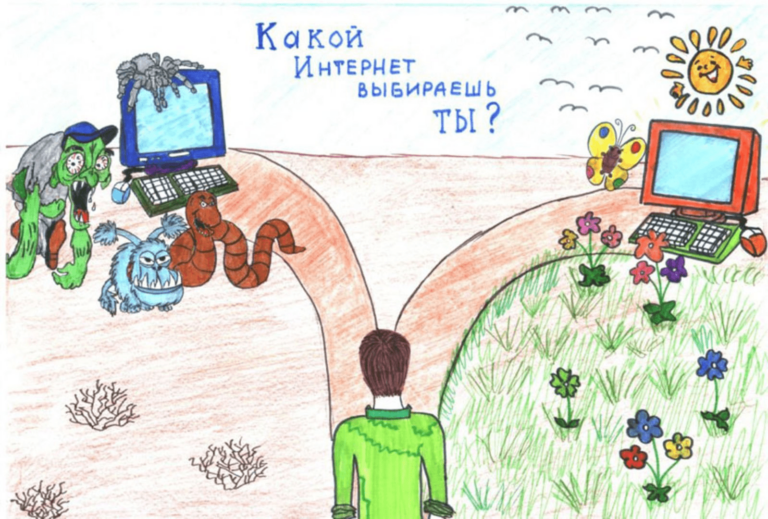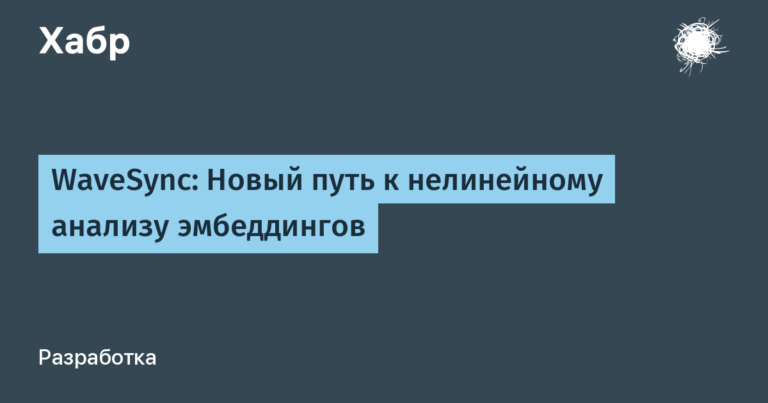The data scientist who just can’t stop winning on Kaggle

Philip, better known in the Kaggle world as Psi, holds a Ph.D. degree with honors in computer science from the Technical University of Graz and also holds a master’s degree in software engineering and business management. Philip has several achievements, including multiple victories and top places at Kaggle, several scientific awards, including the best work at the famous Worldwide Web Conference.
He is currently ranked third in the world in the Kaggle competition rankings. It is both impressive and inspiring. One of Philip’s most notable accomplishments is winning the Second Annual tournament according to big data from the NFL, together with another data scientist H2O.ai Dmitry Gordeev.
Over 2,000 data scientists from all over the world competed on Kaggle to predict the results of the fast-paced game. Philip Singer and Dmitry Gordeev received the main prize – $ 50,000 for their an approach to the task.
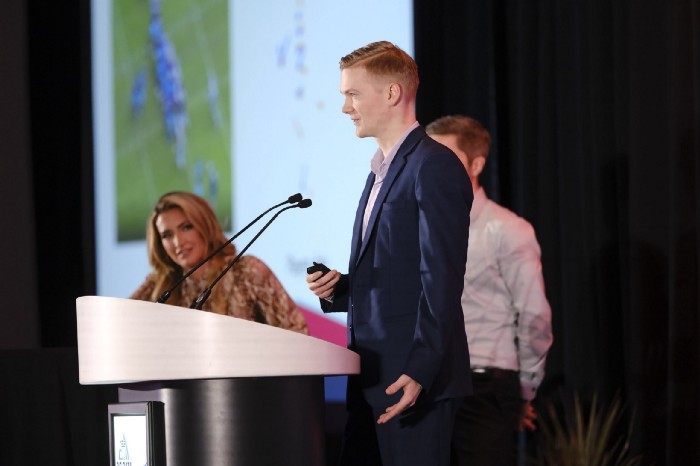
Big Data Bowl 2019–2020 winners Philip Singer and Dmitry Gordeev (back) perform in Indianapolis.
You have a PhD in Computer Science. Why did you choose data science as your career rather than doing scientific research?
Philip: I got my Ph.D. [кандидата наук] Computer Science at the Technical University of Graz in Austria and was engaged in research in Germany. During my scientific career, I have touched on many different topics in data science and have published many scientific papers and articles in renowned conferences and journals. After I was supposed to become a professor, it intrigued me. However, although I love teaching, I wanted to delve into more applied work, that is, I wanted my work to have a greater impact than what is possible in research. This prompted me to pursue data science as a career. I must say, I enjoyed my PhD and learned a lot to the end, but now I am also excited to be at the forefront of data science and machine learning, playing a really important role in H2O.ai.
How did you start your journey on Kaggle, what supported you on your way to the grandmaster?
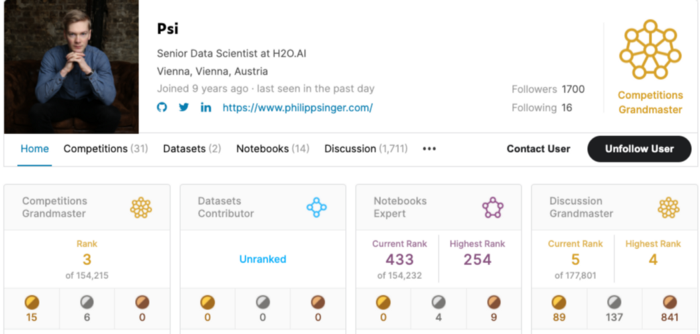
Philip: I signed up for Kaggle about eight years ago when I started as a Ph.D. because I heard about the platform and wanted to test it out. But I did just a sample problem and didn’t touch Kaggle for six years. About two years ago Dmitry (dott1718 on Kaggle, and now a work colleague) decided to try to compete together on Kaggle, it was a side project at work. We didn’t expect anything, but in the end we won the competition. The victory hooked me, from that moment my journey to Kaggle began. At Kaggle, my approach has always been to tackle new types of problems so I stay motivated. There are also new interesting problems that need to be solved correctly. Also, I enjoy meeting and working with talented people on Kaggle and I can see what the community is striving for.
You’ve destroyed the Kaggle leaderboard lately, have some impressive results, the last of which is – 1st place in the NFL and 2nd in Future – Impact Detection… How do you approach solving such problems, how are you going so well?
Philip: People often ask me how to win a Kaggle competition; I don’t think there is any secret sauce to win everywhere. Great success at Kaggle is based on experience, the desire to touch something new, which, at first glance, you know little about. Over time, I have built a very versatile toolbox that contains the building blocks of every competition I competed in. For example, I understand how to properly set up cross-validation, which libraries to use in models, how to select models correctly, track their performance, etc. So I have more time to focus on new and important aspects of recent competitions … after each competition, I always try to improve my workflow in order to increase efficiency and ability to compete with competitors.
Great success at Kaggle is based on experience, a desire to touch something new, which, at first glance, you know little about.
How do you decide which competitions to participate in?
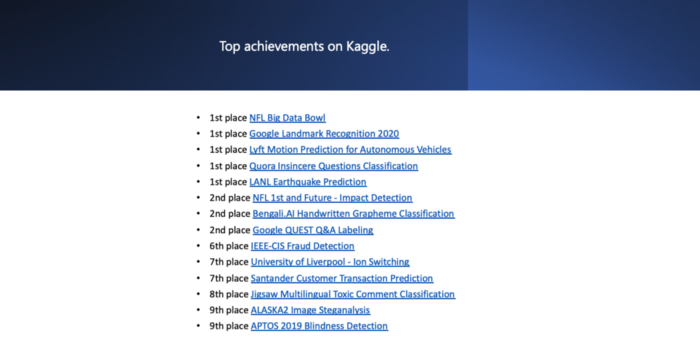
Philip’s Best Achievements on Kaggle
Philip: I mostly try to solve new types of problems or compete that seem interesting in terms of the data or the problem to be solved. Sometimes I try my luck in more standard competitions to understand the state of the art in Data Science that changes every week.
How do you usually approach a problem on Kaggle? Are there any favorite ML resources (massive open online courses, blogs, etc.) that you want to share with the community?
Philip: I try to draw on the arsenal of methods, tools and experiences I’ve already accumulated, and then try to investigate a specific problem. This means that I am researching previous solutions to similar problems on Kaggle and reading related articles. The best way to study a problem is to learn by doing.
In what specific areas do you work as a data scientist at H2O.ai?
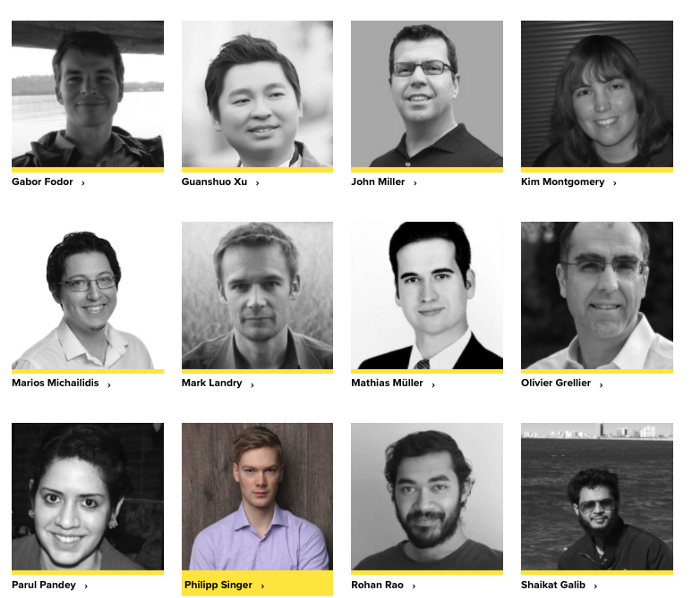
Philip and other Kaggle grandmasters at H2O.ai
Philip: My role in H2O.ai very versatile. I regularly participate in client-oriented projects and my task is – based on experience, support projects in the field of Data Science. In addition, as Kaggle Grandmasters, we always try to use our experience and knowledge of the latest advances to constantly improve our products and develop new leading-edge prototypes and solutions. This means, for example, that we are offering new functions in Driverless AI, we develop AI applications in Wave showcasing new techniques and the entire Data Science solution pipeline.
What are the best things you have learned at Kaggle and are applying to your work at H2O.ai?
Philip: On Kaggle, you will learn how to create robust models that generalize well and not overfit. On Kaggle, this is important because you need to work well with invisible, private data. This means that you will learn a lot about reliable cross-validation and other aspects of the data, such as shifts in the distribution of functions, or some other important aspects. I can adapt this knowledge well in my work at H2O.ai as it is also an integral part of our products. Based on our experience and knowledge, we want our clients’ ML to be reliable.
The field of Data Science is developing rapidly. How do you manage to keep abreast of all the latest events?
Philip: To keep up with the latest developments, I mainly use Kaggle; it is a great filter for new methods that either work with practical and applied problems, or don’t. Usually reliable methods survive, while unreliable methods that only work occasionally are filtered out. At the same time, I follow well-known researchers and practitioners on Twitter and other platforms.
Are there any specific areas or issues where you would like to apply your experience in machine learning?
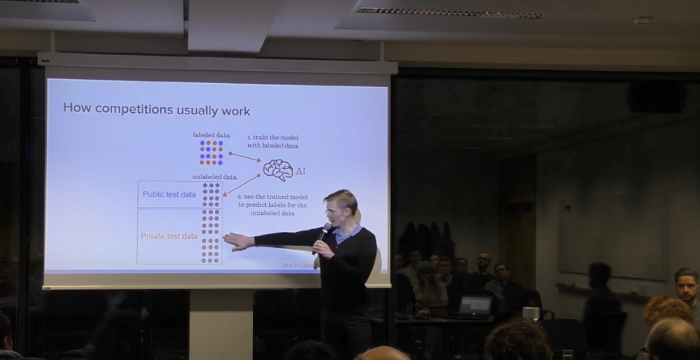
Philip speaks at the Vienna Data Science Group meeting on January 9, 2020.
Philip: I don’t have anything concrete in my head; I usually try to be surprised at interesting problems that arise either at work or at Kaggle. It is very important to delve into problems that at first glance do not seem interesting to you. You can look at the problem objectively and probably refer to the experience that you have gained solving other problems, to the data that you have.
A few tips for Data Science and Kaggle applicants who are just getting started or want to start their journey in Data Science.
Philip: Get your hands dirty, don’t be afraid to fail, and always strive to learn new things.
Philip’s journey to Kaggle was remarkable. I am confident that his path, dedication and achievement will be a source of inspiration for those already working or trying to pursue a career in Data Science.

- Data Scientist Profession
- Data Analyst profession
- Machine Learning Course
- Course “Mathematics and Machine Learning for Data Science”

